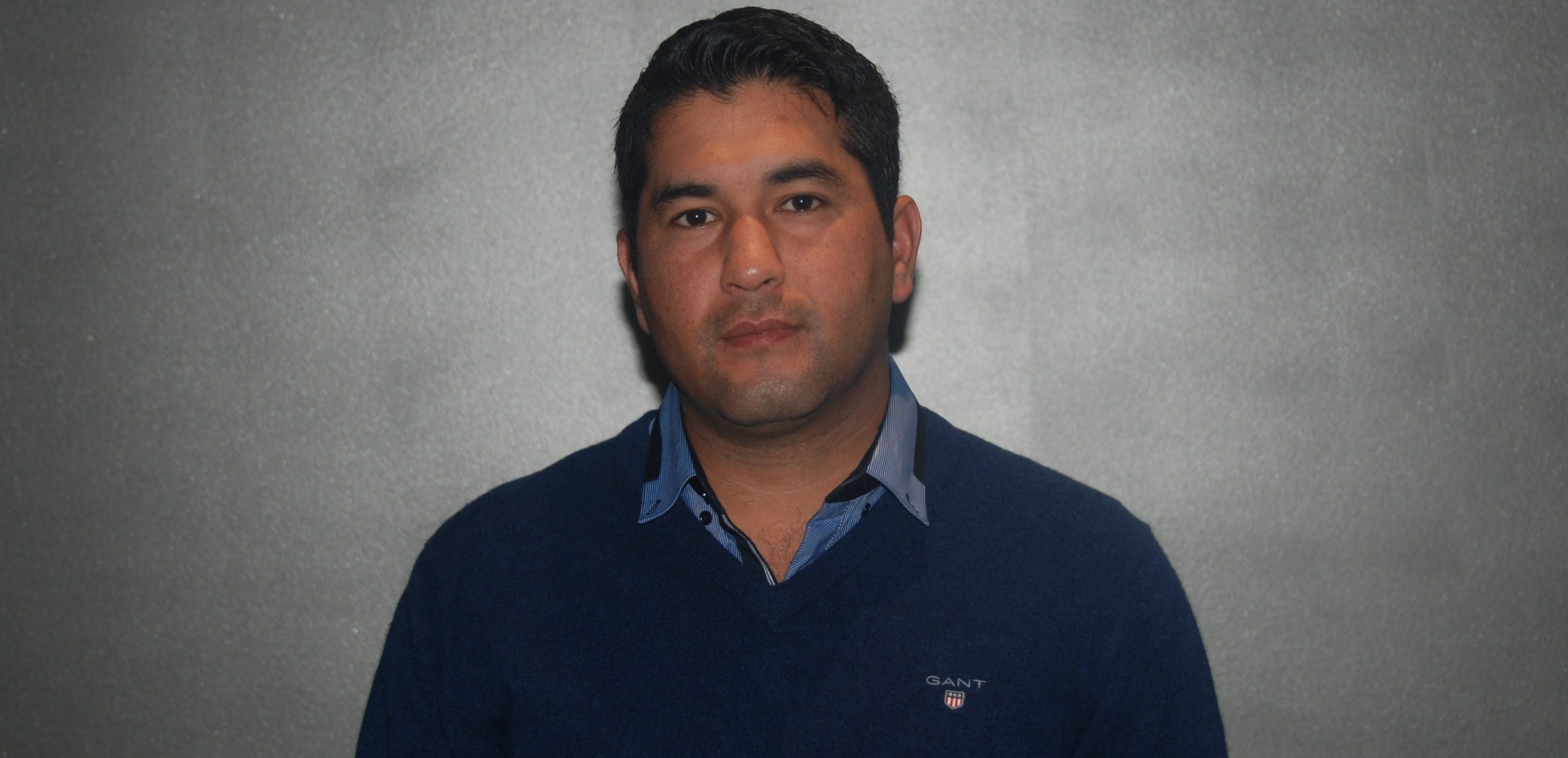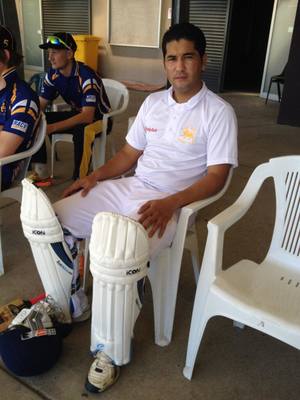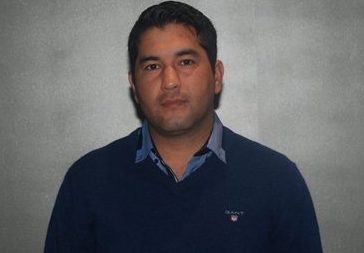
“Sometimes in my life I can be unlucky, but there is luck as well – I lost my family, but I found family.” – Morteza Ali
Morteza Ali fled the Taliban after his family was murdered in Afghanistan during his teenage years, and forged a life for himself against all odds, as NICK CREELY discovers….
To this day, Morteza Ali still doesn’t know he survived.
His past was full of trauma, and to this day, still brings up the rawest of human emotions when recalling the moment his life changed forever.
He grew up in a war-torn country controlled by the Taliban under a strict interpretation of Sharia law during the 1990s, but enjoyed his early years as a shepherd shearing sheep.
It was all Morteza knew, and as far as he was concerned, his village was the world.
“I grew up in a small-village called Dah Mardah, it’s in Ghazni, which is near Kabul, so we were almost cut-off from the world, there was no TV, no internet and no school or anything,” he said of his childhood.
“But it was like a normal village, just children playing different games.
“That was my life – coming home before dark after shearing sheep, and sitting down and an elder from your family will tell you stories.”
As a child, he was warned about the dangers of going to Kabul, the largest city in the country, but understood it was necessary for his family to survive.
“I knew that it was unsafe to go out of our town, but I knew we weren’t going anywhere,” he said.
“Us going to Kabul, it was a very messy job, but most people had to go because you had buy stuff to live, but I wouldn’t go there, usually my father and brother would go.”
Morteza said his village was peaceful, but something was missing, something that he has gradually realized as time has passed.
“Taliban was in force, and they didn’t like our group (Hazara) – there has been tribal wars going on in Afghanistan, and it was the rule of the jungle, if they see you, they could do anything to you,” he said.
“It was quite scary – I didn’t know much about it, but Taliban didn’t like people playing sports or going to school, so I would ask questions like ‘why aren’t I going?’ or ‘why can’t I play?’ but I was told there was consequences if you do.
“As children, you don’t think much about it, but it was unfair for us. It was a small village, but it was my world.“
But everything changed, on a day he described as “normal” in Dah Mardah.
Morteza was at his uncle’s shop, when he was told of the gut-wrenching moment that has not only shaped his life, but caused him mental anguish to this day.
“The Taliban attacked our village (in the aftermath of 9/11) because our group supported America, and my family passed away, absolutely everyone in my family,” he said.
“I was with my uncle at the shop, so I was away from my village helping – I was a bit away from our village, so when I heard, I couldn’t go back, because the village was under attack.”
He was the only one of his family to survive, and struggles to find closure even to this day.
“It has impacted on me in many ways – I always wanted to go back, and I couldn’t,” he said.
He recalls the panic about the unknown in the aftermath of the attack.
“It was shock, I didn’t know what was going on, so I was thinking about different things, but my uncle was staying in touch with me, and he was telling me everything was okay,” he said.
“But I was captured by Taliban militants in Kabul, and they drove me back and took all my stuff, but I ran away from there, and ran to my uncle, and my uncle took me away again.”
At the time, Morteza had no idea about the fate of his mother, father and brother, and in fear of his life, was placed inside a dark, empty oil tanker to drive to Pakistan to flee the horror.
“It wasn’t easy,” he explained.
“It’s another highlight of my life, going from Kabul to England.
“From Kabul, I went inside an oil tanker, and through to Pakistan, Quetta and then to Karachi.
“I went from Karachi to Russia, and from there it was walking most of the time in the snow and everything.
“Obviously it was terrifying from Kabul, there were Taliban checkpoints everywhere – It was very scary, it was dark in the oil tanker, but I was tired, in shock.
“I don’t know how I survived, we didn’t have any proper gear or any proper shoes – I was hungry, there was no proper food or water, and I’m surprised I survived, to be honest.”
In a journey that lasted a year and five days, Morteza made his way from Kabul to England as a 15-year-old boy, not knowing English, and not knowing whether his family had survived.
“It wasn’t until I arrived in the UK that I was told about it (his family), and I was shocked,” he said.
“Honestly, I was quite sad, I’ve needed counselling, and that’s helped me, but it’s still had an effect even to this day.”
Arriving in the summer of 2002, Morteza could finally explore his love of cricket, and met his foster father who has changed his life, and helped him have his first game of hard ball cricket with Cunmor Cricket Club, as well enjoy his first experience in public school (Oxford Community School).
“I was lucky to have good people around me in England – I personally believe it was due to cricket, and I went to school and met an Afghani guy who was playing for a local club, and I also met Roger Mitty (Cunmor Cricket Club), he accepted me as a son, and he guided me.
“He helped me a lot in adjusting to the UK, it was obviously a culture shock for me.
“I was very lucky in school, I had a lot of good teachers, and all those things helped me a lot to get through my education, learn English – they all accepted me, and I’m grateful for them.“
Morteza eventually become just the second Afghani player to play first-class cricket in 2009, when he represented Oxford Marylebone Cricket Club University in a match against Worcestershire.
But that itch to go back to Afghanistan in 2012 and visit his village eventually brought him to Australia after a decade in the UK.
He briefly settled in the south-east of Melbourne, and found cricket, as well as love, but missed the UK deeply.
“It was totally accidental (coming to Australia),” he said.
“I booked my holiday in 2012 to go to Afghanistan, and I contacted my villagers – at that time, Taliban merged with ISIS, and they urged me not to come back, because it’s not safe at all.
“I had a few friends with Australia, and they told me to come here.
“It was a 24-hour flight, so I arrived here, and I really liked the country – I went to Casey Fields, and Cranbourne was practicing and the president met with me, but at the last minute they signed someone else.
“I then contacted Narre South, and they invited me – It was a bit difficult being on a holiday visa because I couldn’t really get any work, but I met another Afghani girl here, but I found it hard, so I went back to England.
“But I was in touch with my girlfriend, and she said to come back and we’ll get married – I loved England, and Oxford, but I moved here, we got married and settled here.
“Sometimes in my life I can be unlucky, but there is luck as well – I lost my family, but I found family.”
He said despite almost leaving Narre South at the end of last year, his past has taught him that loyalty is everything.
“Narre South love me, and I love them too – last year I wanted to move, but we sorted it out,” he said.
“I don’t like changing clubs, I played with Oxford for eight, nine years, and Narre South are like family to me now, people like Rob Wilson have been wonderful to me.”
Morteza, who is one of the stars of local cricket in the Dandenong District Cricket Assocation, was also captain of the Afghan cricketers in the Melbourne Renegages Champions League tournament between six teams divided into countries of origin late last year, and is now one of the great promoters of sport in Melbourne’s Afghan community.
Only recently, his challenged home nation play its first ever test-match against India in mid-June in Bengaluru.
Despite Afghanistan going down in the historic occasion against one of the world’s great powerhouses, Morteza couldn’t be prouder of his country. To him, it filled him with pride as an Afghani man.
“We have been so depressed over the years, and there is a lot of potential and talent – even last month, they were playing cricket and there was a blast at the ground,” he said.
“It’s still a challenging time for Afghanistan, they love cricket, soccer, volleyball, and they love sport and want to go to school, but they can’t even do that.
“They are doing so well though, and they did well in Twenty20 – despite the challenges and losing the match to India, in such a short time, Afghanistan are doing well.”
He hopes, that in time, Afghanistan – and other war-stricken countries around the world – can live in peace.
“It’s very hard – there is so much international influence, and to be honest, I don’t see it being resolved. Pakistan, India, Iran and obviously America are involved, and Russia too, and they all support different groups,” he said.
“Innocent people are just dying because of international politics – most people want to go to school, play sport and live their own life, but all because of these countries, I don’t see anything happening until these countries leave them alone.
“It’d be great if the world could live peacefully, and every country could progress – there would be no hatred.
“Through my journey, I’ve seen different backgrounds and cultures, and the people that have helped me, some were Jewish, proper Christian, Hindu, and I don’t understand why these things happen.
“We are all the same – there are bad people in every country, and it’s very frustrating to see what happens.“
But one day, Morteza hopes to visit Dah Mardah, as it was once his world.
“I really hope I can go back one day, but ISIS are starting to control, so it’s very dangerous,” he said.
“I don’t have family there, so I’m not in a rush, but I want to see my village, so it’s very frustrating.”
Morteza’s story is not going unnoticed, with a book entitled ‘Morteza Ali – The Journey’ set to be released in the near future. The book is a graphic tell-all of his life, with contributions from Roger Mitty, as well as former England captain, Mike Atherton.
In the book, Atherton says that “willpower carried Morteza all the way from Afghanistan” and compared his journey to Michael Winterbottom’s “harrowing but beautiful film ‘In This World’, which tells the story of two Afghani refugees who embark on a dangerous journey to England from a war-torn country.
“When I was in the UK, I was thinking about things, and it mentally affected me a lot – I was keeping note of my journey, just for myself, and people kept telling me to write a book,” Morteza said.
“For me to come and play first-class cricket, and to get an education from one of the most popular institutions in the world, it can be inspiring for people.
“And I have to appreciate the people along the way, and try and give a message to the world that it’s not about hatred, if we can look after each other, we can all be happy.
“People have different journeys, and mine was dangerous, so it’s a story about how people have helped me.”









